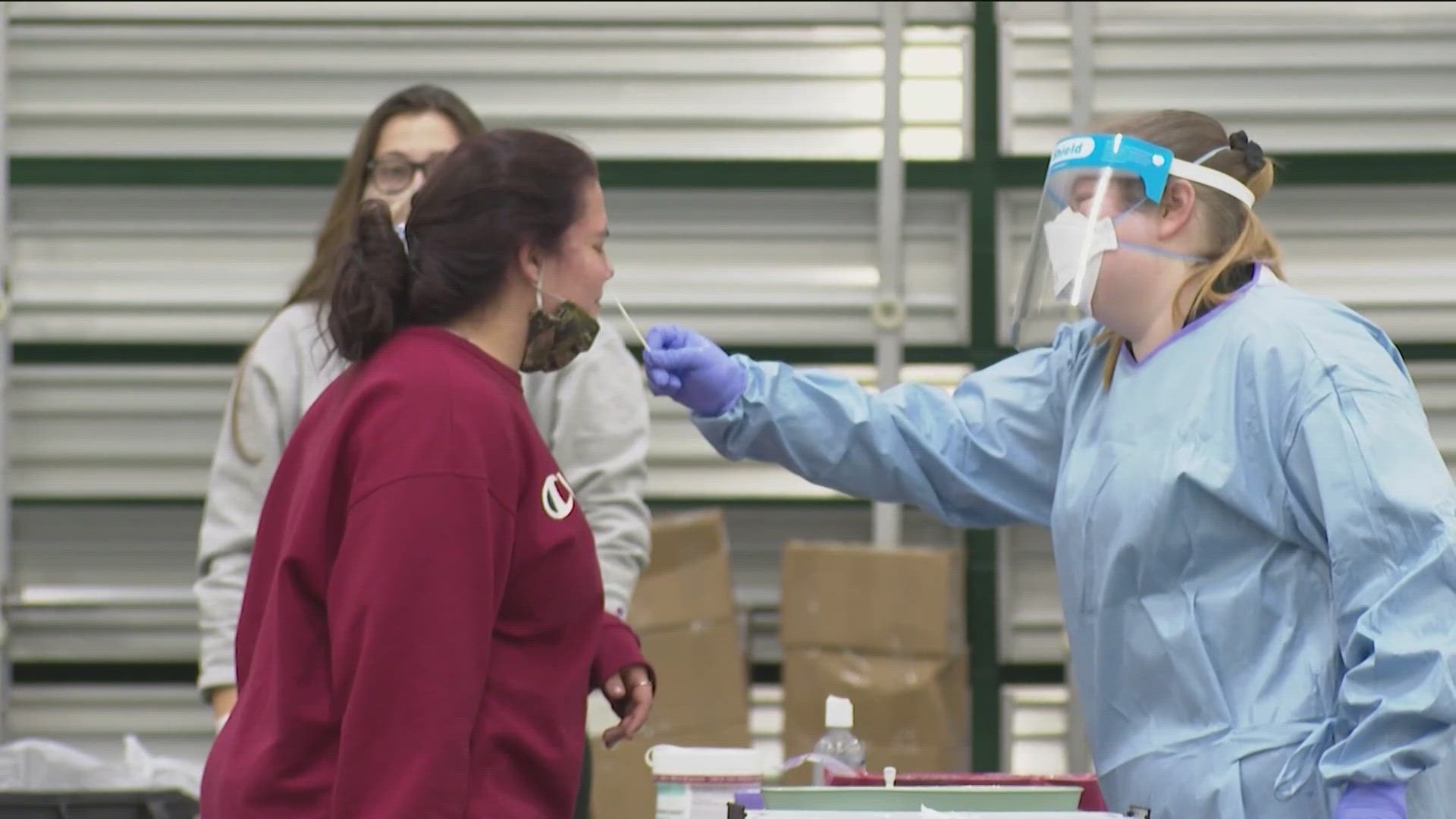WASHINGTON — People of color in America are far more likely to have serious worries about the COVID-19 pandemic's effect on their family and economic situation than white people, according to new data from an NBC News|SurveyMonkey Weekly Tracking Poll.
Fifty-one percent of non-white adults say they are “very” worried that either they or a member of their family will be exposed to the coronavirus, compared with just 29% of white adults. Overall, a combined 79% of non-white people in America say they're “very” or at least “somewhat worried” about that exposure, versus 65% of white adults.
Broken down by race, 78% of Black people, 82% of Hispanic people and 82% of Asian people said they are either very or somewhat concerned about their family's exposure to the virus.
White and non-white Americans also express different levels of anxiety about the economic impact of the virus.
Fifty-six percent of non-white people in America say they're very worried the outbreak will negatively impact their household's finances— including 55% of Black people, 59% of Hispanic people and 53% of Asian people.
By contrast, just one-third of white people share that view (60% of white adults say their personal economic situation is excellent or good, while just 36% of non-white adults say the same).
White adults are also more likely to view the outbreak as more of an economic crisis than a health crisis for the country as a whole than non-white adults.
And 86% of non-white adults are worried about a potential second wave of the coronavirus, compared to 74% of white adults.
Public health officials, politicians and the like have been concerned about issues of inequality surrounding the pandemic, particularly as protests for racial justice have shined a spotlight on the issue of race in America. Black and Latino communities have been hit particularly hard by the disease— data from the Centers for Disease Control and Prevention show that non-white patients make up a disproportionate number of those hospitalized with COVID-19, even when controlled for age.
The racial divide also extends to how people view their political leadership during the pandemic.
White adults approve of President Trump's handling of the federal response to the pandemic by a 3-point margin (51% approve while 48% disapprove). But among non-white people just 28% approve of his pandemic response, compared to the 68% who disapprove of it.
Black adults are the least likely to approve of Trump's pandemic response — 17% of Black people, 32% of Hispanic people and 35% of Asian people approve of the way the president has handled the pandemic response.
Overall, 44% of adults approve of Trump's pandemic response and 55% disapprove. That's virtually identical to his overall approval rating in the poll, as 44% approve and 54% disapprove of his job as president.
White adults are twice as likely to trust President Trump to decide when to open businesses in their area over their governor than non-white adults are. But a clear majority of all adults, 69%, trust their governor more to make those decisions, compared to the 27% who prefer that Trump decides.
These data come from a set of SurveyMonkey online polls conducted July 6-12, 2020 among a national sample of 53,106 adults in the U.S. Respondents were selected from the more than 2 million people who take surveys on the SurveyMonkey platform each day. The modeled error estimate for this survey is plus or minus 1.0 percentage points. Data have been weighted for age, race, sex, education, and geography using the Census Bureau’s American Community Survey to reflect the demographic composition of the United States age 18 and over.



